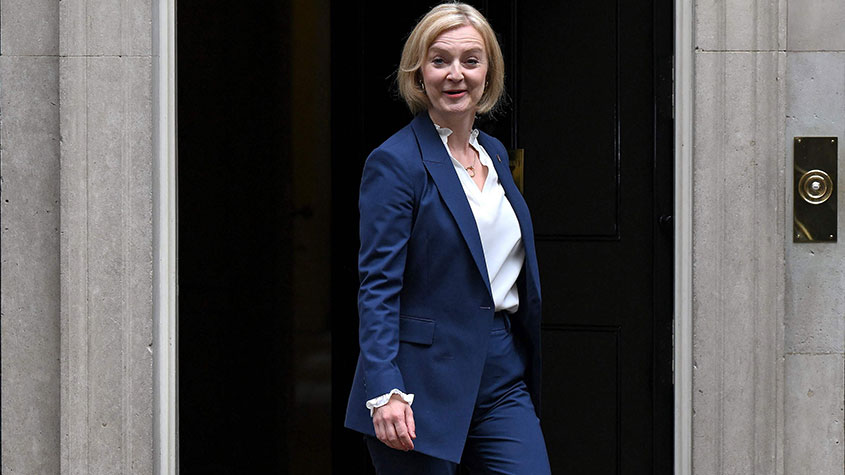Trading: short this sickly looking health insurance broker
eHealth’s accounting seems too optimistic and regulators are circling, says Matthew Prtridge.


Get the latest financial news, insights and expert analysis from our award-winning MoneyWeek team, to help you understand what really matters when it comes to your finances.
You are now subscribed
Your newsletter sign-up was successful
Want to add more newsletters?
America’s S&P 500 index plunged by a third when the coronavirus crisis struck. But it has since rallied and is back to where it was at the beginning of the year. The remarkable rebound suggests that this may be a good time to consider some short-selling ideas. One company that looks a prime target for short-selling is health insurance broker eHealth (Nasdaq: EHTH). The group is in a sector beset by continual regulatory scrutiny, but has nonetheless been on a tremendous tear over the past two years, rising from under $25 a share in June 2018 to around $120 today.
The reason for this surge is that between 2017 and 2019 sales more than doubled, while they are projected to increase by another 50% between 2019 and 2021. The company, previously loss-making, is now making a large profit. It says this is due to the rising popularity of its platform, which allows Americans to compare health-insurance plans online.
Just as online brokers have revolutionised real estate, eHealth aims to do the same for American healthcare, helping consumers reduce the cost and complexity of what is generally deemed one of the most complicated and expensive health systems in the world.
Try 6 free issues of MoneyWeek today
Get unparalleled financial insight, analysis and expert opinion you can profit from.

Sign up to Money Morning
Don't miss the latest investment and personal finances news, market analysis, plus money-saving tips with our free twice-daily newsletter
Don't miss the latest investment and personal finances news, market analysis, plus money-saving tips with our free twice-daily newsletter
How secure are sales?
However, the firm has attracted increasing attention from activist short-sellers, who argue that most of eHealth’s increase in revenue comes from changes to accounting rules a few years ago. The company uses the “mark to model” accounting technique, which lets it book expected sales and profits over the lifetime of a client.
Crucially, these expected sales and profits are based on eHealth’s own assumptions about how long people will remain customers, so if they cancel their plans, or stay with eHealth for a shorter period than expected, then the anticipated commissions could fail to materialise. They also argue that eHealth’s assumptions may be overly optimistic in that they depend on customers who have traditionally changed their plans regularly sticking with their provider.
It is always possible that eHealth’s projections could be proved correct and the short-sellers proved wrong. Still, there are several reasons why I think that the company is overvalued. Firstly, the mark to model technique has a terrible reputation, so I would be sceptical about any company that used it. The fact that the company is currently burning through large amounts of cash isn’t a good sign either. What’s more, I think that the current valuation of 24.6 times 2021 earnings is very high for a company in an industry under increasing political scrutiny.
I therefore suggest that you short eHealth at the current price of $118. Given how volatile the stock can be, stake £20 per $1 (a lower level than I’d normally recommend, with a wider stop-loss), covering your position if it rises above $168. This gives you a total downside of £1,000.
Get the latest financial news, insights and expert analysis from our award-winning MoneyWeek team, to help you understand what really matters when it comes to your finances.

-
 Student loans debate: should you fund your child through university?
Student loans debate: should you fund your child through university?Graduates are complaining about their levels of student debt so should wealthy parents be helping them avoid student loans?
-
 Review: Pierre & Vacances – affordable luxury in iconic Flaine
Review: Pierre & Vacances – affordable luxury in iconic FlaineSnow-sure and steeped in rich architectural heritage, Flaine is a unique ski resort which offers something for all of the family.
-
 Why you should keep an eye on the US dollar, the most important price in the world
Why you should keep an eye on the US dollar, the most important price in the worldAdvice The US dollar is the most important asset in the world, dictating the prices of vital commodities. Where it goes next will determine the outlook for the global economy says Dominic Frisby.
-
 What is FX trading?
What is FX trading?What is FX trading and can you make money from it? We explain how foreign exchange trading works and the risks
-
 The Burberry share price looks like a good bet
The Burberry share price looks like a good betTips The Burberry share price could be on the verge of a major upswing as the firm’s profits return to growth.
-
 Sterling accelerates its recovery after chancellor’s U-turn on taxes
Sterling accelerates its recovery after chancellor’s U-turn on taxesNews The pound has recovered after Kwasi Kwarteng U-turned on abolishing the top rate of income tax. Saloni Sardana explains what's going on..
-
 Why you should short this satellite broadband company
Why you should short this satellite broadband companyTips With an ill-considered business plan, satellite broadband company AST SpaceMobile is doomed to failure, says Matthew Partridge. Here's how to short the stock.
-
 It’s time to sell this stock
It’s time to sell this stockTips Digital Realty’s data-storage business model is moribund, consumed by the rise of cloud computing. Here's how you could short the shares, says Matthew Partridge.
-
 Will Liz Truss as PM mark a turning point for the pound?
Will Liz Truss as PM mark a turning point for the pound?Analysis The pound is at its lowest since 1985. But a new government often markets a turning point, says Dominic Frisby. Here, he looks at where sterling might go from here.
-
 Are we heading for a sterling crisis?
Are we heading for a sterling crisis?News The pound sliding against the dollar and the euro is symbolic of the UK's economic weakness and a sign that overseas investors losing confidence in the country.